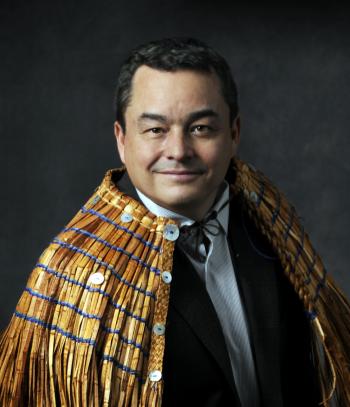Give the win to Stephen Harper, with an assist to some of those who claim most loudly to oppose him.
The Prime Minister is well known for being unsatisfied with merely besting opponents, seeking rather to break them. He has done so again and may well be on his way to larger goals.
Aided and abetted by many of those who swear their opposition to the Conservative government's unhidden agenda against First Nations rights and interests, the National Chief is gone and the Assembly of First Nations may be mortally wounded as an institution.
The resignation by Shawn A'inchut Atleo as National Chief of the AFN is a significant loss to the cause of Indigenous rights in Canada. It is also an undeserved downfall for a man with a keen mind, an open heart, and a degree of integrity many of his opponents on both sides failed to show.
Following the February 7th announcement of a "deal," much of the criticism of the Conservative government's legislation on First Nations education turned into an attack on the National Chief and the AFN. Calls were mounting for this resignation. Plans are in the works for an emergency meeting of Chiefs to reverse its support for the bill. The utility of the AFN, funded by a government that shares none of its goals, had been called into question once again.
In his brief statement, Atleo said, "This work is too important and I am not prepared to be an obstacle to it or a lightning rod distracting from the kids and their potential."
Ironically, Atleo's resignation makes no difference to the legislation. Bill C-33 will pass because of the Conservative majority that brought us this polarization.
But the story here is not the legislation. As my last blog on this subject made clear, there was no doubt that Bill C-33 did not meet the five criteria Chiefs had set for their support, despite claims to the contrary by Aboriginal Affairs Minister Bernard Valcourt.
The real story is the increasingly untenable position of the National Chief and the AFN created by a duplicitous Conservative government and its vengeful leader.
In his first term of office at the AFN, with a minority government in Ottawa, Shawn Atleo's thoughtful and pragmatic approach to his role as advocate for First Nations rights and interests meant that legislative attempts to undermine those rights could be defeated or amended and some small progress, like the reluctant acceptance of the United Nations Declaration on the Rights of Indigenous Peoples, could be achieved.
That all changed with the election of a Conservative majority in 2011.
Since then, the Conservatives have passed a host of legislation that diminished the legal rights and undermined the legitimate interests of First Nations.
The Crown-First Nations Gathering in January of 2012 amounted to nothing more than an embarrassing photo-op from which the National Chief walked away empty-handed and politically damaged by association.
A year later, in the midst of Idle No More protests and hunger strikes, simply attending a meeting with Harper further distanced Atleo from his increasingly frustrated constituents.
But the coup de grace came with the announcement of the Conservative's redrafted education bill, with a banner declaring a "deal" with the AFN and with the Prime Minister's speech repeating that claim.
The National Chief of the AFN has no power to strike such a deal and no one knows this better than Shawn Atleo. In fact, he made no such deal. He repeatedly said in the weeks following that it would be up to First Nations, as the holders of rights the AFN was trying to defend, to determine for themselves the value of Bill C-33. And his statement that the bill "reflected" the five criteria Chiefs had put forward was an accurate, though misleading, characterization of legislation that made some steps toward each of those criteria without fully meeting them.
Atleo's support for the bill came from a position of weakness -- the lack of power to overcome the tyranny of Harper's majority -- and from a deep desire to make some small progress on the issue that Atleo himself had defined as the priority of his administration. It was both the best anyone could do against the Conservative government and not good enough.
While Atleo might be faulted for choosing co-operation rather than confrontation in his advocacy on behalf of First Nations, it is the consistently unco-operative approach of the Harper government that brought the National Chief down, that has angered First Nations citizens to the point of calling for this resignation, and that may put an end to the AFN itself as a voice for justice.
Having succeeded in dividing First Nations against themselves, conquest may soon follow.




Comments
Do
Don't